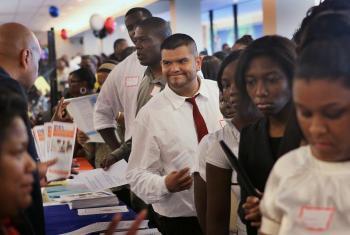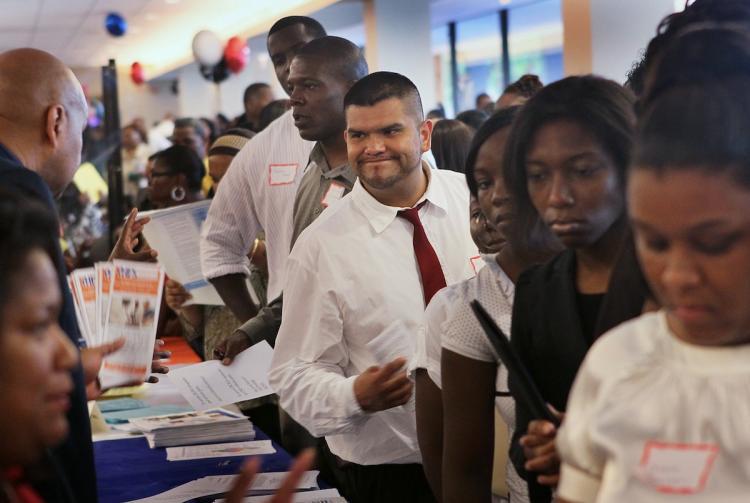Economic Recovery Threatened by Jobs, Eurozone Outlook
The U.S. labor market fell by 125,000 jobs, while the stock market lost 3.6 percent in the month of June

Job seekers speak with recruiters during a career fair at Malcolm X College on June 23 in Chicago, Illinois. Unemployment in the Chicago metropolitan area is 10.7 percent, slightly higher than the 9.5 percent nationwide. Scott Olson/Getty Images
|Updated:





